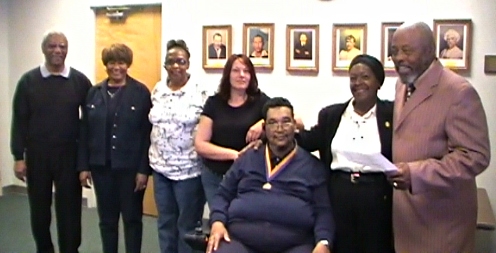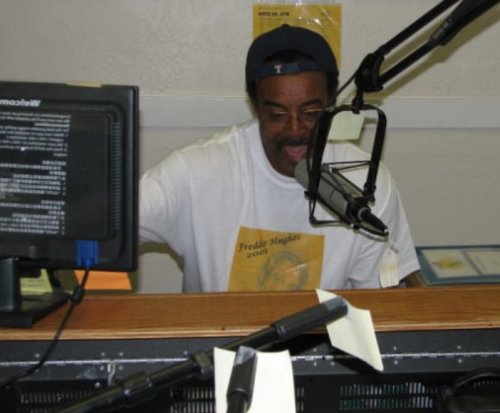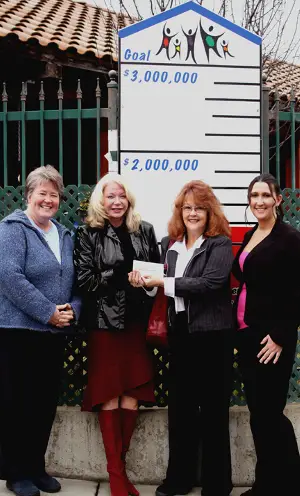- Elizabeth Larson
- Posted On
Unemployment numbers continue sharp rise

LAKE COUNTY – Unemployment rates in Lake County, California and the nation are continuing their steep upward climb, according to new government reports. {sidebar id=116}
California's unemployment hit 9.3 percent in December, up from 8.4 percent in November, according to the state Employment Development Department (EDD). In December of 2007, unemployment in California was at 5.9 percent.
The US unemployment rate was 7.2 percent for December, up from 4.9 the previous year, according to the US Bureau of Labor Statistics.
In Lake County, December's unemployment rate was at 13.1 percent, the highest local rate since March of 1997, according to EDD records. That was up from the 12.4 percent rate last November.
Lake County's December 2007 unemployment rate was 9.6 percent, with 2,420 people out of work. This past month, approximately 3,430 people were out of work locally, a growth of 1,010 people added to the unemployment rolls over a year's time.
California lost 78,200 nonfarm jobs in December, and had 257,400 fewer jobs in December 2008 than it did the previous year, according to the EDD.
In all, California has 1,732,000 unemployed workers – a number that was up by 166,000 from November and up by 653,000 compared with December of 2007. Those who were unemployed included 785,200 who were laid off and 125,300 who left their jobs voluntarily.
The rest were either new entrants or reentrants into the labor market, or persons who completed temporary jobs, according to a federal household survey.
Not all of those on unemployment are receiving any help. The EDD reported that 655,445 people across the state received regular unemployment insurance benefits during the December survey week, compared with 593,670 in November and 451,098 in December 2007.
EDD reported that new claims for unemployment insurance were 87,979 in December 2008, compared with 80,920 in November and 56,984 in December of last year.
The US Bureau of Labor Statistics reported that, nationwide, payroll employment fell by 524,000 jobs in December and by 1.9 million over the last four months of 2008, with job losses being “large and widespread across major industry sectors.”
The actual number of unemployed nationwide increased by 632,000 in December to reach 11.1 million, the bureau reported.
Since December 2007, when the recession is recorded as starting, 3.6 million people have become unemployed across the nation, which caused the national unemployment rate to climb by 2.3 percentage points.
Government looks at solutions
In a statement on the recent unemployment report, Gov. Arnold Schwarzenegger said he is fighting for “aggressive economic stimulus” in the state's drawn out budget negotiations.
“Our increasing unemployment rate makes it clear that the crisis in our nation’s economy that has led to job losses is completely tied to our state budget shortfall,” Schwarzenegger said.
He said the state's fiscal problems can't be solved without working to stimulate the economy, and he's pushing for four elements he believes are immediately necessary: spending reductions, increasing revenues, making government run more efficiently and stimulating the economy by putting people back to work and helping families stay in their homes.
Economic stimulus for the entire nation is a stated goal of legislation at the federal level.
Last week, North Coast Congressman Mike Thompson reported that the House Ways and Means Committee, of which he is a member, voted 24-13 to support a comprehensive economic recovery package – HR 598 – that is making its way through Congress. The legislation is due to be combined with other legislative components into HR 1, the American Recovery and Reinvestment Act.
Thompson is advocating for rural areas to receive a fair share of bond funding in the legislation that is targeted at infrastructure projects and job training programs.
During his first weekly address on Saturday, President Barack Obama discussed the $825 billion American Recovery and Reinvestment Plan, which he said will jumpstart the economy and tackle unemployment.
“Just this week, we saw more people file for unemployment than at any time in the last 26 years,” he said, noting that experts agree that if nothing is done the nation's unemployment rate could reach double digits.
Some of the plan's key points involve creating four millions jobs over the next few years while building new infrastructure – such as 3,000 miles of new electric grid transmission lines – weatherizing millions of homes, securing ports, renovating schools and protection health insurance for millions of Americans who face losing it.
Republicans in Congress, including Sen. John McCain and House Minority Leader John Boehner, are skeptical of the proposal.
In a Sunday appearance on NBC's “Meet the Press,” Boehner warned against raising taxes during a recession, and was critical of the plan favored by Obama and a reported majority of Democrats.
“We need an economic rescue package, but we all want one that works, one that helps small businesses, helps American families, helps create jobs and preserves jobs in America, and what we see with their plan is a lot of spending that I just don’t think will work,” Boehner said.
E-mail Elizabeth Larson at This email address is being protected from spambots. You need JavaScript enabled to view it..
{mos_sb_discuss:2}

 How to resolve AdBlock issue?
How to resolve AdBlock issue? 










